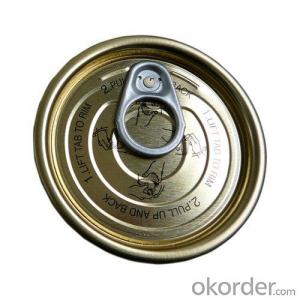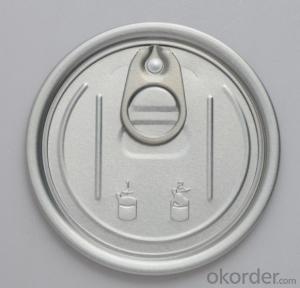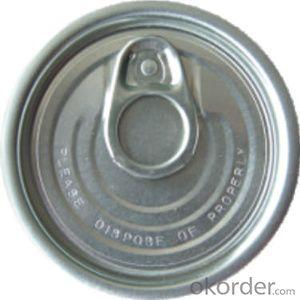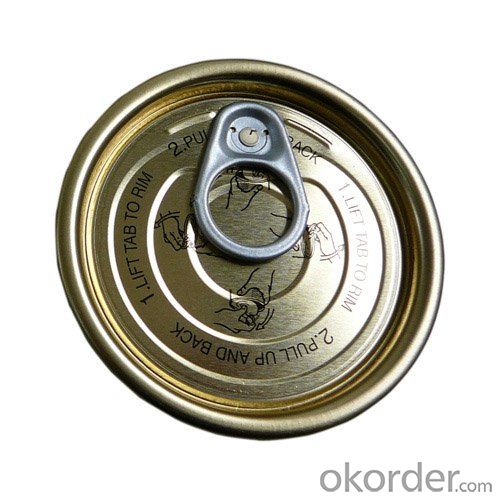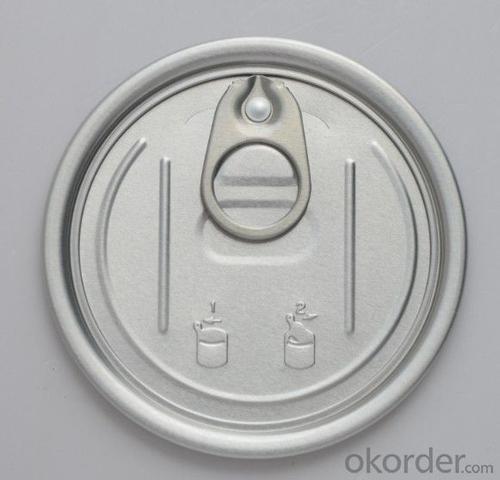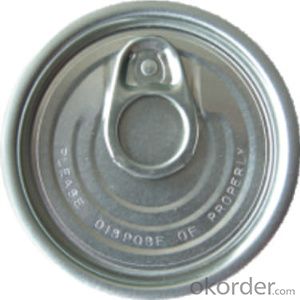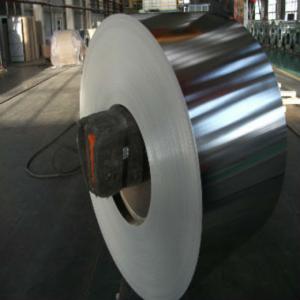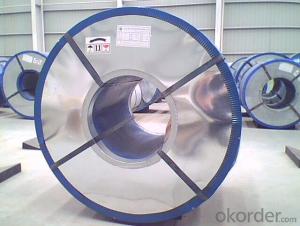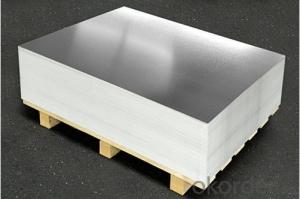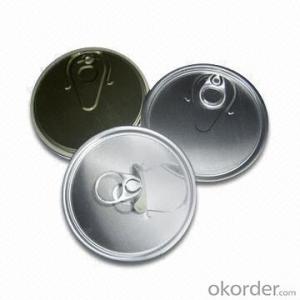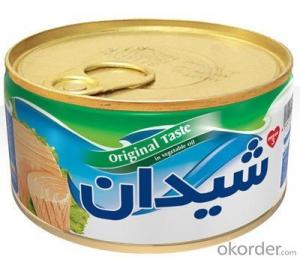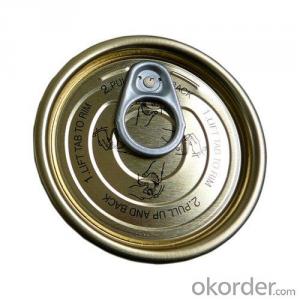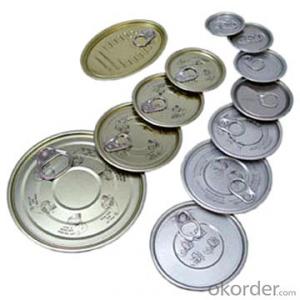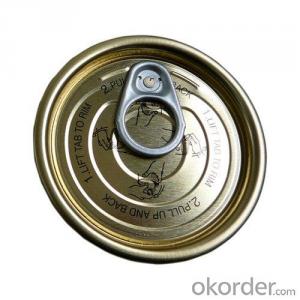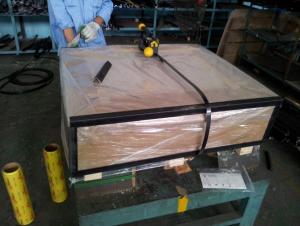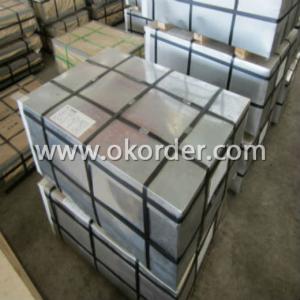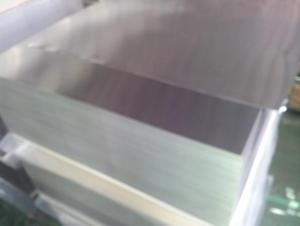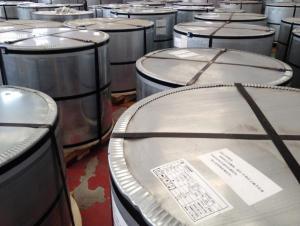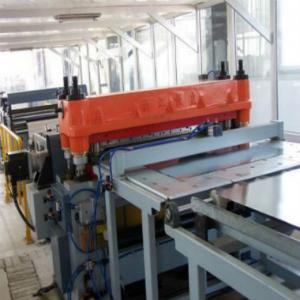FULL OPENER END 401 TIN CAN, TINPLATE/ALLUMNIUM
- Loading Port:
- China main port
- Payment Terms:
- TT OR LC
- Min Order Qty:
- 130000 PCS
- Supply Capability:
- 1500000 PCS/month
OKorder Service Pledge
OKorder Financial Service
You Might Also Like
Specifications
1.Y401 full open EOE
2.Tinplate eoe, ISO LIDS,
3.Diameter:98.9mm for canned
4. bottole caps for round can
5.cheap EOE,
Model No:Y401 full open EOE
Meterial:Tin or TFS
Diameter:98.9mm
Item Name | easy open end |
Model No. | Y401 |
Inner Diameter | 98.9mm |
Material | TIN OR TFS |
MOQ | 100000pcs |
Order lead time | 15days |
Packing | Export standard carton |
QTY/CTN | 1000pcs/16KG/Ctn, 475ctns/20FT |
Features | Fully open panel with saferim, clear/white/gold coating, thickness 0.235mm. |
Function | solid or dry food packing, such as milkpowder, coffee powder, tea, nuts, chocolate, snack |
Samples | Free |
Payment | T/T, L/C |
Load port | Shantou/shenzhen Port, china |
Our packing
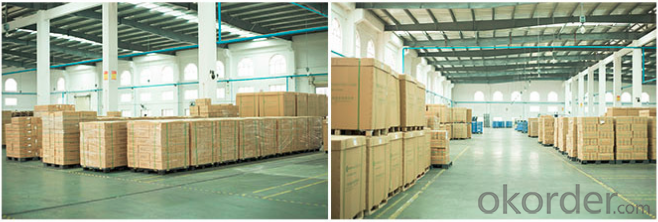
Our Workshop
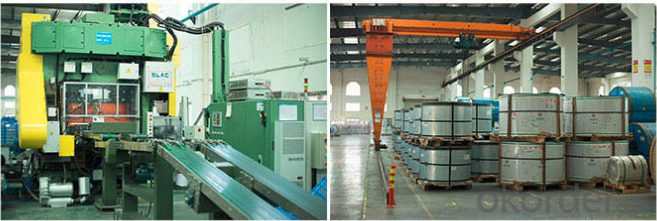
FAQ
1.Q: What is the material of EOE?
We can offer both tinplate and aluminum material made EOE;
2.Q:Could you offer samples for our testing?
YES, we could offer sampler for free if needed;
3. Q:Can you make new mold with customized size I need?
YES, We can make mold for you if reach some qty.
- Q: What are the main factors affecting tinplate coil surface finish?
- The main factors affecting tinplate coil surface finish are the quality of the tin coating, the cleanliness of the substrate, the surface roughness of the steel base, and the processing conditions during manufacturing.
- Q: How do you solve the water stains on the tinplate?
- The root damage is caused by waterlogging, and the transport of water and nutrients is a problem. Of course, the unnecessary dead leaves are cut off
- Q: How long does tinplate last?
- Tinplate can last for several decades if properly maintained and protected from corrosion.
- Q: Can tinplate be used for electrical enclosures?
- Yes, tinplate can be used for electrical enclosures. Tinplate is a type of steel sheet coated with a layer of tin, which provides corrosion resistance and durability. It can effectively protect electrical components from environmental factors, ensuring the safety and longevity of the enclosure.
- Q: What are the properties of tinplate?
- Tinplate is a type of steel coated with a thin layer of tin, which gives it several advantageous properties. It is highly corrosion resistant, making it ideal for packaging food and beverages. Tinplate is also malleable, allowing it to be easily formed into various shapes and sizes. It has excellent solderability, enabling tight and secure seals. Additionally, tinplate offers good heat resistance, electrical conductivity, and is lightweight.
- Q: Cookies with tinplate packaging has what advantage
- 1. good mechanical properties: tinplate cans relative to other containers, such as plastic, glass, paper containers and strength, and good rigidity, it is not easy to break. It is not only used for small sale packing, but also the main container for large transportation package. 2. excellent barrier: Tin than any other...
- Q: What is the purpose of coating tinplate?
- The purpose of coating tinplate is to provide a protective barrier against corrosion and to enhance the appearance of the metal surface.
- Q: Can tinplate be used for coinage?
- No, tinplate cannot be used for coinage as it is a thin sheet of steel coated with a layer of tin, which is not a suitable material for making coins.
- Q: Can tinplate be used for packaging fragile items?
- Yes, tinplate can be used for packaging fragile items. Tinplate is a durable material that provides excellent protection against impact and external factors, making it suitable for packaging delicate and fragile items.
- Q: How does tinplate packaging contribute to product aesthetics?
- Tinplate packaging contributes to product aesthetics by providing a visually appealing and shiny surface that enhances the overall look and feel of the product. The smooth and reflective nature of tinplate gives a premium and luxurious appearance, attracting consumers' attention and increasing the perceived value of the product. Additionally, tinplate packaging allows for intricate and detailed designs, including embossing and lithographic printing, which further enhance the product's visual appeal and create a unique and memorable packaging solution.
Send your message to us
FULL OPENER END 401 TIN CAN, TINPLATE/ALLUMNIUM
- Loading Port:
- China main port
- Payment Terms:
- TT OR LC
- Min Order Qty:
- 130000 PCS
- Supply Capability:
- 1500000 PCS/month
OKorder Service Pledge
OKorder Financial Service
Similar products
Hot products
Hot Searches
Related keywords
